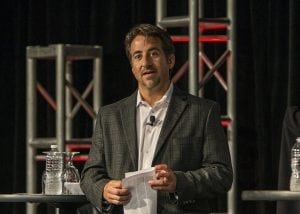
The organization that administers the R2 e-scrap recycling standard has elevated Corey Dehmey to the executive director role. He replaces John Lingelbach, whose exit from the group was announced earlier this year.

The organization that administers the R2 e-scrap recycling standard has elevated Corey Dehmey to the executive director role. He replaces John Lingelbach, whose exit from the group was announced earlier this year.
An update to this story is available here.
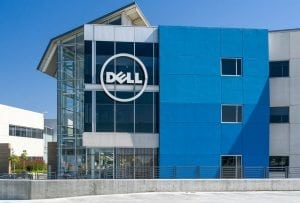
The Basel Action Network has launched a commercial tracking service to monitor e-scrap flows, and its first customer is an OEM that was lambasted by the watchdog group over exports two years ago.

Legislation supporting retrievable storage as a downstream outlet for CRT glass has advanced in Illinois, and certification standards organizations are concerned – one may even consider withdrawing its program from the state.
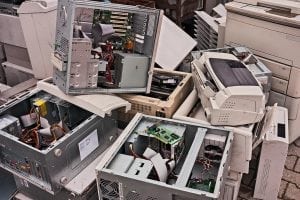 A $25,000 grant will help a Nebraska processor achieve R2 certification, part of a larger effort to boost e-scrap recycling capacity in the Cornhusker State.
A $25,000 grant will help a Nebraska processor achieve R2 certification, part of a larger effort to boost e-scrap recycling capacity in the Cornhusker State.
A computer tower with a tracking device provided by the Green Tracking Service (device at lower right).
A U.S. company has begun providing an e-scrap tracking service so processors and OEMs can see where their downstream vendors are sending devices. One processor is already regularly using the service.
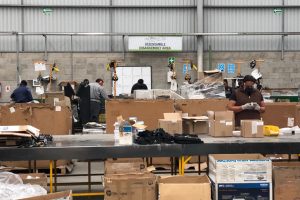
The processing line at Proambi’s facility in Mexico, photo courtesy of Salvador Río
Mexico may be America’s neighbor to the south, but in some ways, the e-scrap ecosystems in the two nations are worlds apart. And perhaps the biggest difference is the fact that in Mexico, an informal system of electronics collection and processing is well-established.
 The administrator of the R2 recycling standard has detailed what is and isn’t legal when shipping used electronics and e-scrap to Hong Kong.
The administrator of the R2 recycling standard has detailed what is and isn’t legal when shipping used electronics and e-scrap to Hong Kong.
Continue Reading
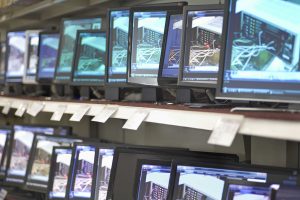 PCs and display devices will have to meet new standards to be listed on a registry of environmentally friendly electronics.
PCs and display devices will have to meet new standards to be listed on a registry of environmentally friendly electronics.

Over the past decade, third-party certification has become an expectation for many processors and refurbishers of electronics.
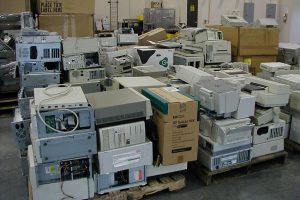 The group behind the R2 standard released a broad plan for ensuring certified facilities better conform to the electronics recycling standard. Among the considerations is the use of GPS trackers to keep tabs on material movement.
The group behind the R2 standard released a broad plan for ensuring certified facilities better conform to the electronics recycling standard. Among the considerations is the use of GPS trackers to keep tabs on material movement.

